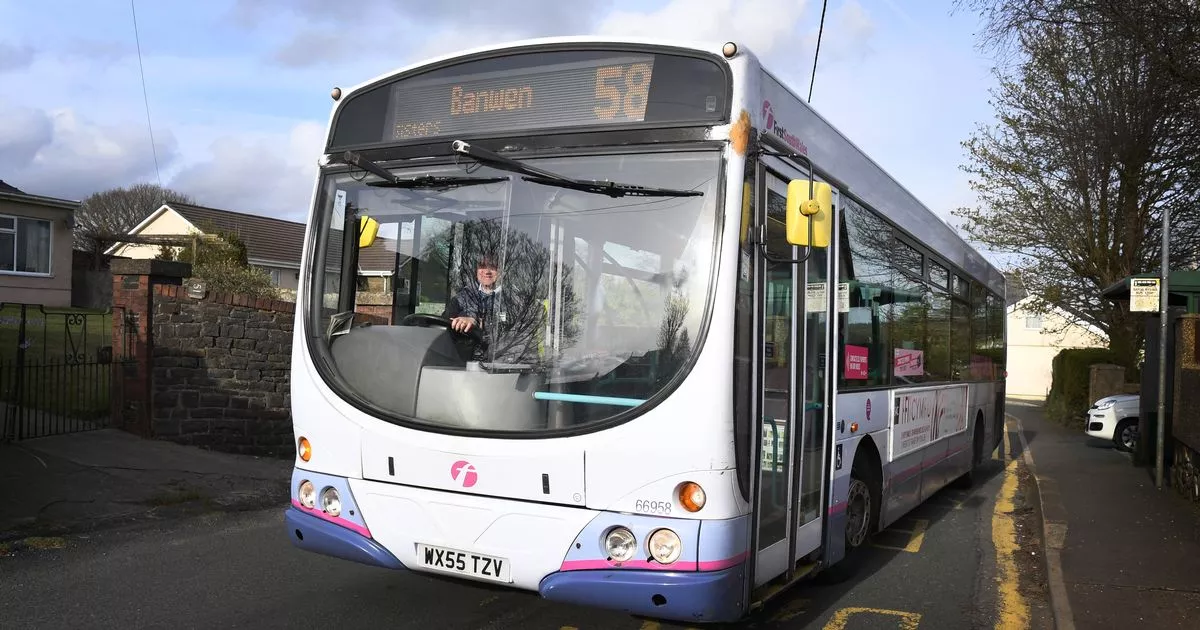
Cars and other private vehicles worsen global heating, endanger our bodies and health, poison our air and wreck our neighbourhoods. Yet, instead of trying to encourage us to make less use of them, governments in the UK are busy doing the very opposite. The UK government, cynically and absurdly, even declares that it’s fighting a war on behalf of ‘the motorist’.
Here in Wales things aren’t much better. The Welsh government’s strategy and rhetoric pretend that Wales is greener and more enlightened. But its actions speak louder than its words. There’s no better example than way it’s currently treating the funding of bus services.

Back in August, bus operators warned that a quarter of all services could be lost if the Welsh Government withdrew its support funding. Now, a big programme of cuts to bus services is under way throughout the country. Here in Swansea, First Cymru, which runs most of the city’s routes, has just announced substantial cuts. Nine services are being entirely withdrawn from 29 October. Other routes will see reductions, especially at weekends, and on others again buses will run less frequently, or take longer routes. In our own part of the city we’ll be left with just one bus an hour – only a few years ago we had four – with a new, circuitous route. It will be impossible for non-car owners to get access to the Bay and the beach.
Rural bus services are also under attack. The west Wales Bwcabus service, which Prof. Stuart Cole, Wales’s leading authority on personal transport, sees as the most effective way of giving mobility to carless people in isolated communities, is to be scrapped. Other, scheduled services are being withdrawn across Wales.

The cumulative results of all these cuts will be dire, especially for non-car owners (well over 20% of people living in Wales). Social inequality will increase still further. Fewer and fewer people will travel by bus. Worse, it will be even more difficult to turn the tide of environmental damage caused by the rise in number and use of cars. There must be many people like me, who for years have preferred to take the bus into town and leave the car in the drive. Now the buses will not be there, and we’ll have little choice but to drive.
No one comes out well from of this story of decline. Once, First Cymru used to run a disciplined and efficient bus service. Today it cancels buses with no notice or apology, and pays little heed to published timetables. Its drivers seem to receive scant training, in driving skills or passenger interaction. Swansea Council is also culpable. It does little to promote greener transport, and constantly gives car drivers priority in its decisions, in everything from excessive waits for pedestrians at road crossings to building yet more city centre car parks.

But ultimately the fault lies with the Welsh Government. Its declaration, in April 2019, of a ‘climate emergency’, now looks threadbare and meaningless, because it simply isn’t prepared to take the kinds of action that an emergency calls for. What’s the point of introducing 20mph restrictions in residential areas, with the partial aim of making life more bearable for non-car users, if at the same time you make it harder for the latter to get around by removing the option of bus travel?
In the case of transport and bus services, I have a suggestion to make, to start changing things for the better. Every member of the Welsh government Cabinet should be taken on a mandatory two-day visit to Copenhagen, Helsinki, Utrecht or another suitable city on the Continent (or even London), and hear how city governments have proved that it’s possible to organise a greener and fairer urban environment based on excellent public and sustainable private transport. Having their eyes opened to what’s possible might just change policies back home.

Leave a Reply